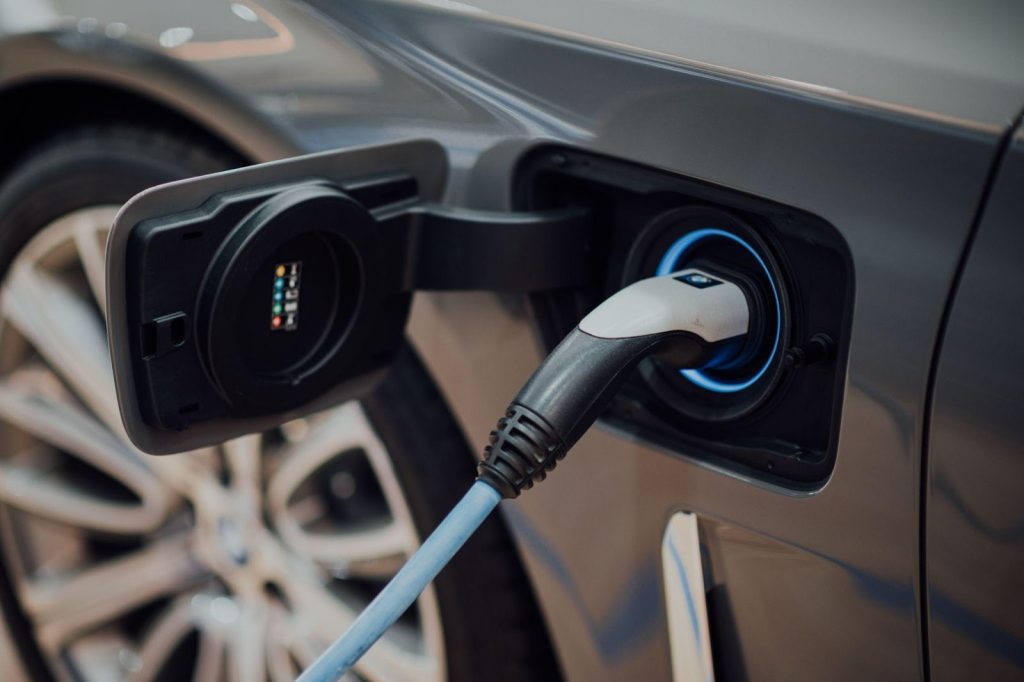Electric cars are taking the world by storm, but which industries stand to benefit the most from their booming popularity?
By Lucy Nixon at The Eco Experts
In the past few years the number of electric cars on the road has increased rapidly.
With governments worldwide making environmental promises (including the UK government’s goal of manufacturing no new petrol and diesel cars from 2030), we can expect to see the once rare electric vehicles popping up on roads everywhere.
Whilst there is no denying the positive impact that electric cars have on the environment, they also provide various other benefits for various industries, both in terms of increases to profit and productivity.
Until recently, many industries have been reluctant to embrace EV technology. In 2022, however, there can be no denying the benefits electric cars bring.
We’ve listed some of the key industries below that will benefit the most from the increased use of electric vehicles.

Battery Providers
One of the most obvious industries that will reap the benefits of having more electric cars on the road is the vehicle manufacturing industry, particularly those who specialise in building batteries.
If the sales of electric vehicles continue to progress at the estimated rate then around $60 billion worth of electric batteries will be needed to meet demand.
For companies who have long been interested in battery innovation and creation, the increased focus on encouraging people to switch to an electric car will be music to their ears.
It’s not just the increased demand for batteries (and maintenance) that manufacturers can benefit from. Many governments are now offering companies incentives if they can find safe ways to improve battery range and performance.
Transport
The introduction of electric vehicles isn’t the first revolution for the transport industry and it certainly won’t be the last.
The past decade has seen the introduction of app-based transport providers such as Uber whilst public transport systems including buses, trams and underground trains are still mainstays of every major city.
As electric vehicles become more common we can expect to see dedicated apps for hitching a ride in an eco-friendly car whilst your regular Uber vehicle is likely to be replaced with a greener alternative.
Fully electric vehicles are also exempt from many city rate schemes such as the London congestion charge.
As individual cities look to become greener, many are already undertaking transitions to fully electric or hybrid vehicles. Other than the impact on the environment, the main bonus of this switch for local authorities and transport companies is the reduction in maintenance costs.
Traditionally, electric vehicles are considerably cheaper to maintain than their petrol or diesel counterparts allowing establishments to save money for other projects.

Utility Providers
Another industry set to benefit from the increase in electric cars is utility providers.
If more and more people are driving electric cars then more and more people are going to need to charge them.
As more drivers opt to install an EV charging point at home, their energy usage will inevitably increase. In fact, predictions suggest that the average household’s energy consumption will double with the installation of an EV charging point.
Installing an electric charging point at home has various benefits for EV drivers. Not only does it make charging their cars overnight a breeze but they could also receive a grant from the government towards installation costs (UK).
Electricity providers therefore need to be prepared to meet this increased demand that home EV charging points will create, if they are, they can expect to reap the benefits of increased electricity usage throughout customers homes.
Ecommerce
We are all used to purchasing pretty much anything online these days but what about when shopping for a car?
Whilst traditionally new cars are bought after a trip to the showroom and multiple test drives, as our world becomes ever more time constrained and eco-conscious, that may be set to change.
Electric cars for many herald the start of a journey into new innovations and the process of buying the vehicle is no different.
More and more people are expected to purchase electric cars with a simple click of a button, allowing customers to not only drive an eco-friendly car but purchase one in a green way too.
This shift in purchasing strategy will be particularly beneficial for brands and manufacturers who have already invested substantially in their ecommerce profile.

Delivery
The delivery industry isn’t just the vehicle that drops your items at your doorstep and instead encompasses a whole network of logistics and enterprise services.
With more and more people buying online, and expecting their deliveries asap, the delivery industry is fast becoming one of the planet’s big polluters.
As the online retail economy only continues to grow, the delivery industry has started to adapt, already introducing electric vehicles to fleets.
If the industry can be seen to be embracing EV technology and bringing about positive change then individual companies and brands will be able to benefit from great green credentials in an eco-conscious world.
EV Manufacturers
Finally, one industry that will without a doubt benefit from electric cars is EV manufacturers themselves.
It goes without saying that for car manufacturers who have already invested time and money into creating eco-friendly vehicles, the increased interest and use of electric cars will only be a good thing.
While major names such as Tesla and Polestar are leading the way with state of the art electric vehicles, almost all of the major vehicle manufacturers now offer an electric alternative.
Whilst once electric cars may have been a bit of a novelty, now even the biggest car buffs don’t need to sacrifice their need for speed and performance in order to drive green.
There is no denying that electric cars are going nowhere and over the next few years are only set to become more and more popular on our roads.
These six industries will all benefit from electric cars, whether it’s providing a boost to profits, productivity or their overall green credentials. They’re also the ones to keep the closest eye on as countries worldwide work towards their net-zero targets.